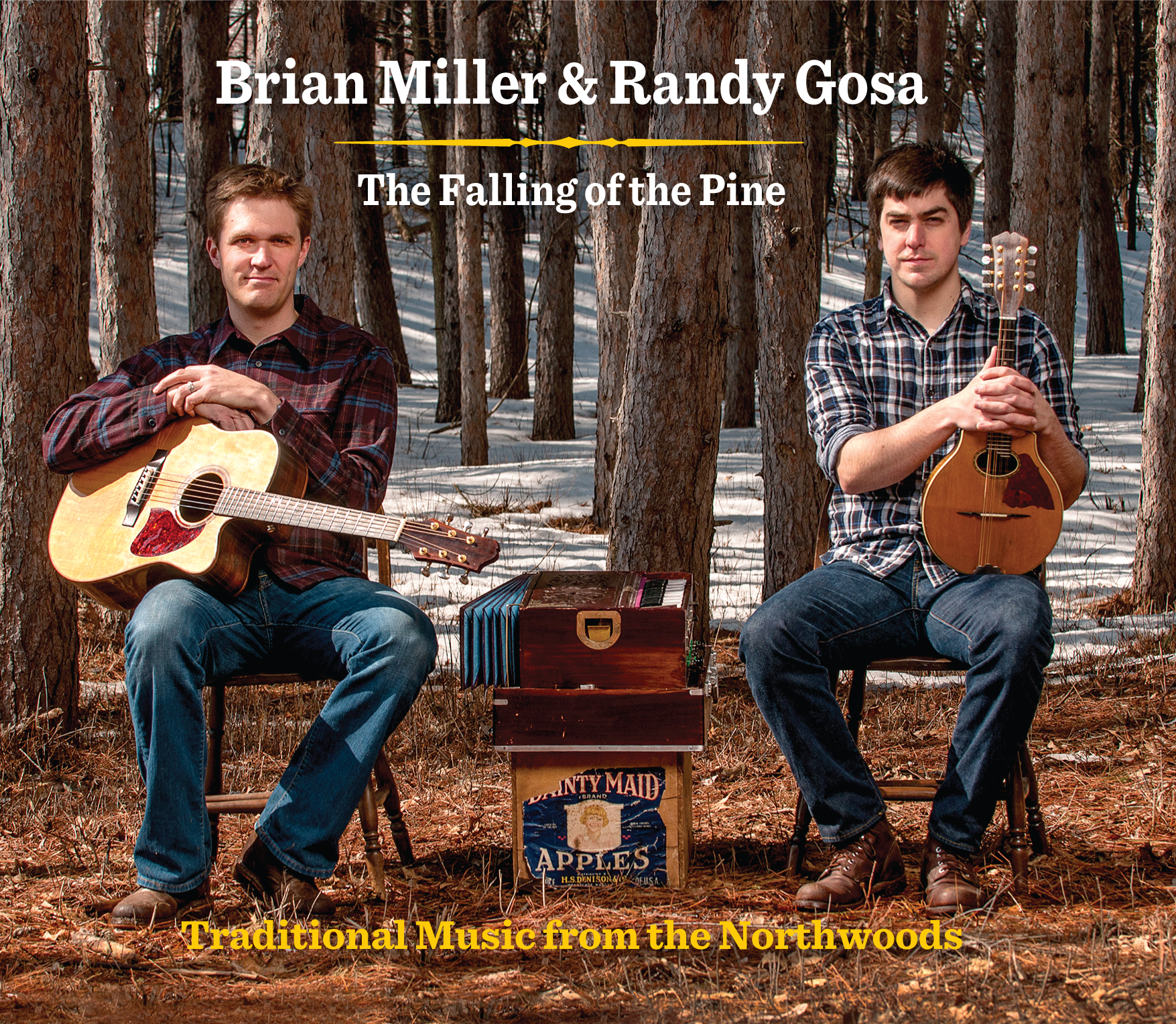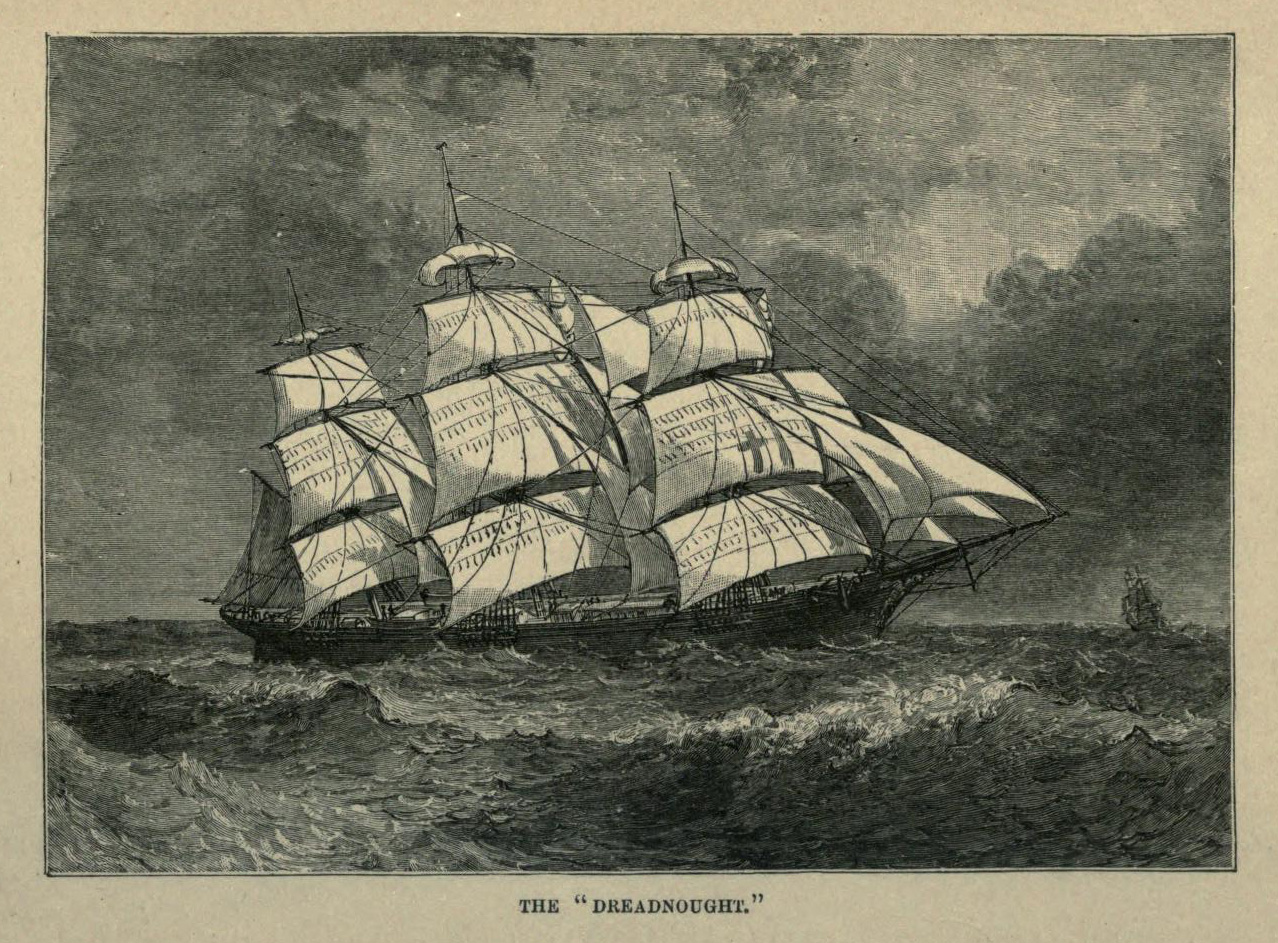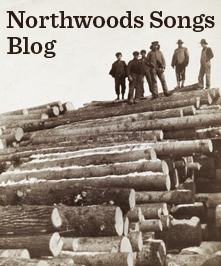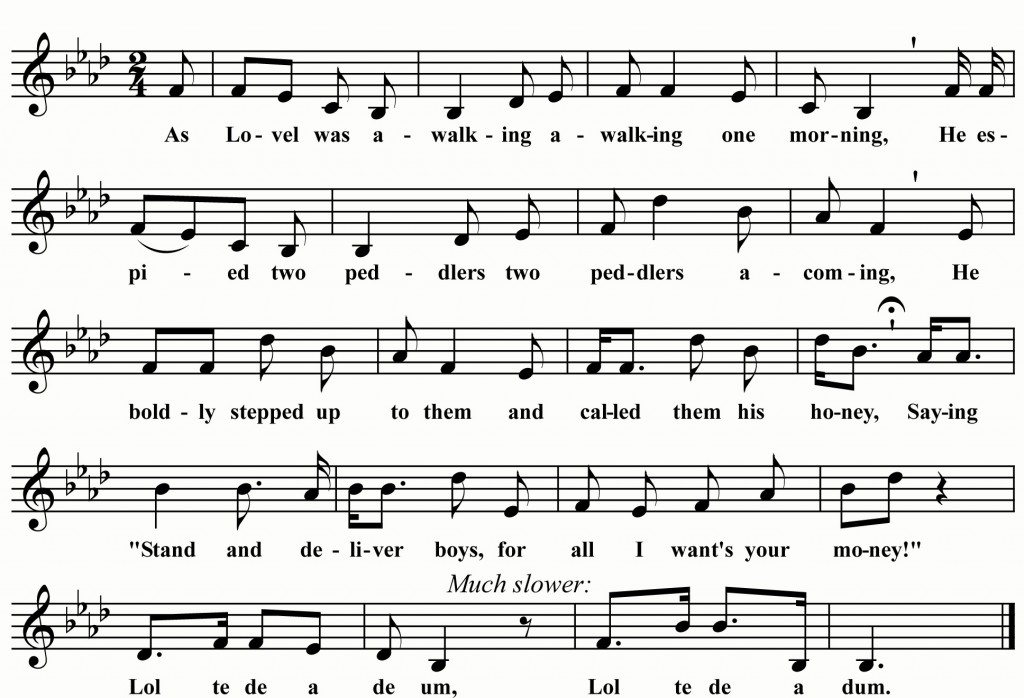
We have a flash packet, she’s a packet of fame,
She belongs to New York and the Dreadnaught’s her name;
She is bound for the ocean where the stormy winds blow,
Bound away on the “Dreadnaught” to the Westward we’ll go.
Now we are laying at the Liverpool dock.
Where the boys and the girls on the pier-heads do flock,
And they gave us three cheers while their tears down did flow,
Bound away on the “Dreadnanght” to the Westward we’ll go.
The “Dreadnaught” is lying in the river Mersy,
Waiting for the tug “Constitution” to tow us to sea,
She tows around the Black Rock where the Mersy does flow,
Bound away on the “Dreadnaught” to the Westward we’ll go.
And now we are howling on the wild Irish sea,
Where the sailors and passengers together agree,
For the sailors are perched on the yard arms, you know,
Bound away on the “Dreadnaught” to the Westward we’ll go.
Now we are sailing on the ocean so wide,
Where the great open billows dash against her black side,
And the sailors off watch are all sleeping below,
Bound away on the “Dreadnaught” to the Westward we’ll go.
And now we are sailing off the banks of New Foundland,
Where the waters are deep and the bottom is sand,
Where the fish of the ocean they swim to and fro,
Bound away on the “Dreadnaught” to the Westward we’ll go.
And now we are howling off Long Island’s green shore,
Where the pilot he bards us as he’s oft done before,
Fill away your main top sails, port your main tack also,
She’s a Liverpool packet, Lord God, let her go.
And now we are riding in New York Harbor once more,
I will go and see Nancy, she’s the girl I adore,
To the parson I’ll take her, my bride for to be,
Farewell to the “Dreadnaught” and the deep stormy sea.
___________________
This month we are back to Minnesota singer Michael Cassius Dean with another song where I have taken the text from Dean’s 1922 Flying Cloud songster and transcribed the melody from Dean’s singing on a 1924 field recording made by Robert Winslow Gordon. The Gordon recording of this song is quite hard to hear so I was also aided by Franz Rickaby’s 1923 transcription of Dean singing “The Clipper Ship Dreadnaught.”
The Dreadnought (originally spelled with an “o”) was a famous packet ship that carried both goods and passengers (including many immigrants to the US) between Liverpool and New York in the 1850s and 60s. She was celebrated for her great speed.
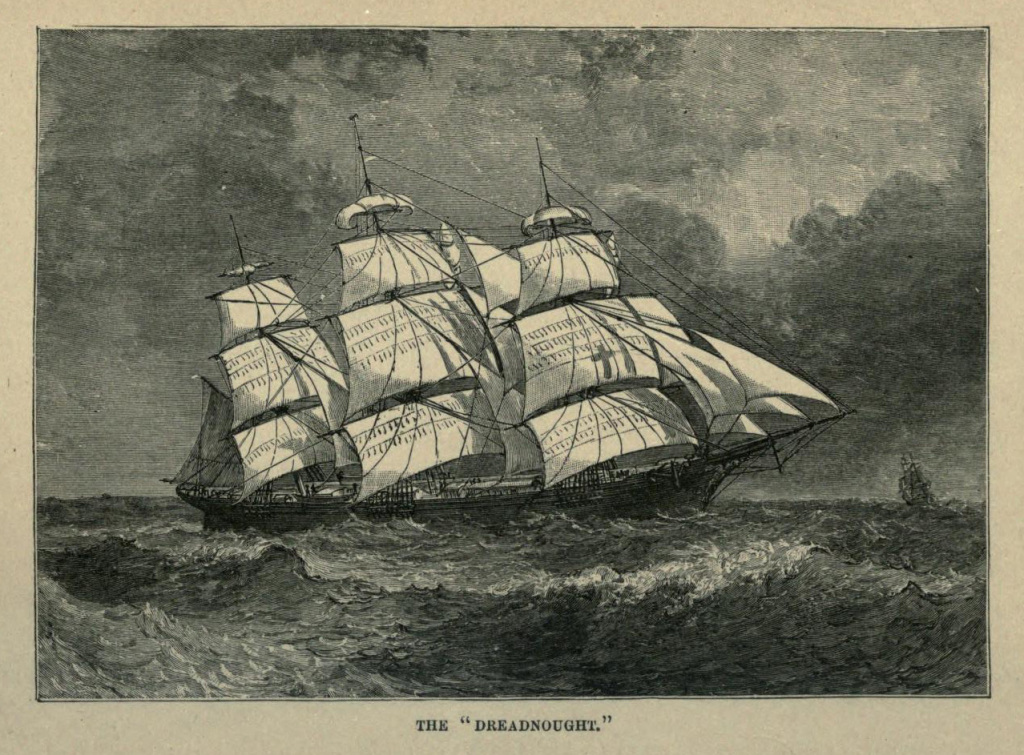
from the book From the Forecastle to the Cabin (1887) by Captain Samuel Samuels (the Dreadnought’s captain)
The song seems to be of American origin though it was no doubt modeled on similar English songs. Dean was one of many Great Lakes region singers who sang “The Dreadnaught” and it was also popular in the maritime provinces of Canada. The only version I have found from outside North America is one collected by Sam Henry from a Co. Donegal singer where the ship’s name has been changed to “The Zared” and the port of origin is “Londonderry” instead of Liverpool.
More info on this song available from the Traditional Ballad Index here.
